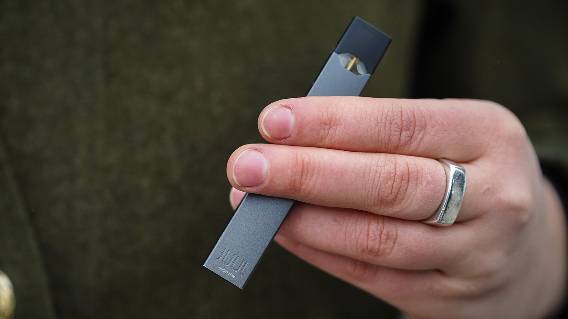
Juul filed an emergency appeal the day after the U.S. Food and Drug Administration banned its products, allowing the company to keep selling vaping devices and pods until a federal court reviews the ban.
On June 23, 2022, the FDA issued marketing denial orders (MDOs) to Juul Labs Inc., ordering the e-cigarette maker to stop selling and distributing its vaping products immediately. The next day, Juul filed an appeal and called the FDA’s ban an “extraordinary and unlawful action.”
The federal appeals court granted a temporary hold on the ban while it reviews the case.
According to Juul, the FDA’s ban was a result of political pressure from Congress. The company said Congress blamed it for the teen vaping epidemic.
“As with all manufacturers, JUUL had the opportunity to provide evidence demonstrating that the marketing of their products meets these standards,” said Michele Mital, acting director of the FDA’s Center for Tobacco Products. “However, the company did not provide that evidence and instead left us with significant questions. Without the data needed to determine relevant health risks, the FDA is issuing these marketing denial orders.”
Now the appeals court will decide whether Juul can sell its products. The FDA has until July 7 to respond to Juul’s motion for an appeal. After that, Juul will have until July 12 to respond.
‘Insufficient and Conflicting’ Data on Risks
Juul claims that it provided an abundance of data and further alleged that the regulatory agency overlooked more than 6,000 pages of data provided.
However, the FDA issued the MDOs after Juul provided them with “insufficient and conflicting” data, the agency said.
“In particular, some of the company’s study findings raised concerns due to insufficient and conflicting data – including regarding genotoxicity and potentially harmful chemicals leaching from the company’s proprietary e-liquid pods – that have not been adequately addressed and precluded the FDA from completing a full toxicological risk assessment of the products named in the company’s applications,” the agency said in its initial statement.
The appeal also said that FDA has authorized the sale of vaping devices and pods from Juul’s competitors, including R.J. Reynolds’ Vuse, claiming the FDA held Juul to a higher standard.
When FDA reviewed data from R.J. Reynolds, the agency authorized Vuse products for sale because “chemical testing was sufficient to determine that overall harmful and potentially harmful constituent (HPHC) levels in the aerosol of these products is lower than in combusted cigarette smoke.”
Thousands of Lawsuits Pending in California
In addition to litigation over the ban, Juul faces thousands of pending class action and individual injury lawsuits that claim the vaping company manufactured a defective product that encouraged addiction and led to serious health conditions.
As of June 15, 2022, over 3,800 Juul lawsuits are pending before U.S. District Judge William H. Orrick III. So far, no trials have taken place.